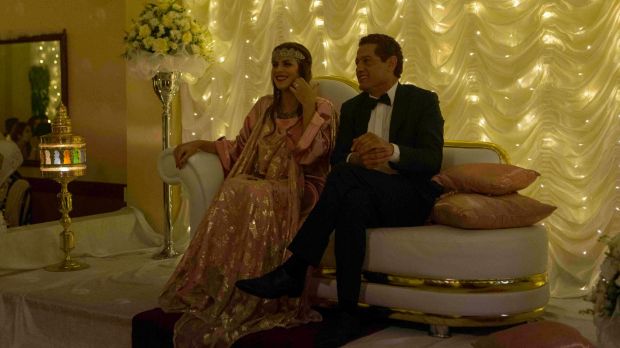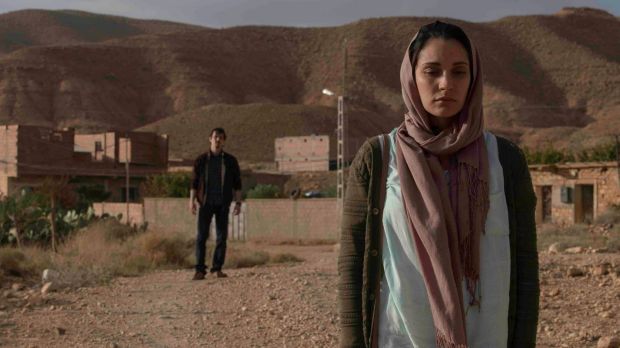You’re unlikely to see a better Algerian movie this year than Karim Moussaoui’s debut.
Whatever its strengths and weaknesses, Karim Moussaoui’s debut feature was always destined to be a remarkable thing. It’s a feature film from Algeria, and such things are, these days, rare beasts indeed.
The country that won a best foreign picture Oscar in 1970 for Z(though set in Greece and directed by Costa-Gavras, who is Greek, it was an Algerian production) has produced just 28 feature films since its long-running civil war (1991-2002) ended.
Whatever its strengths and weaknesses, Karim Moussaoui’s debut feature was always destined to be a remarkable thing. It’s a feature film from Algeria, and such things are, these days, rare beasts indeed.
The country that won a best foreign picture Oscar in 1970 for Z(though set in Greece and directed by Costa-Gavras, who is Greek, it was an Algerian production) has produced just 28 feature films since its long-running civil war (1991-2002) ended.
Three stories reflect the characters’ search for connection in the damaged landscape of Algeria.
“In a good year we could say there are four or five features plus about 10 short films,” Moussaoui says. “But there are years where there is not even one feature.”
Moussaoui’s Until the Birds Return, which screens at the Melbourne International Film Festival, debuted at Cannes in May. I spoke to him there, through an interpreter. While he speaks English, he said he was concerned that his command of the tongue wasn’t good enough to say what he wanted to say about his film.

Fair enough; it’s not an entirely straightforward affair. There are three narratives, ordered sequentially, each new one overlapping with the one that came before, so the themes are passed along like a baton in a running relay. There’s a coda, too, a story that begins but doesn’t quite reach its conclusion. “In a way it suggests that this kind of thing could carry on endlessly,” he says.
The kind of thing he has in mind is people facing moments where they must choose between doing the right thing or doing the easy thing. It’s a universal choice, perhaps, but in Algeria, where there is a sense of unfinished business, of justice not entirely done, it carries a particular weight.
“My idea was to tell a story of people who are asking themselves questions at a moment of their life, asking about the past – because in a way they are stuck in a situation, stuck between their desire and what they are ‘obliged’ to do. It’s this kind of struggle between a wish to live in a rather secure way, which leads you to be satisfied with the model you are given as opposed to trying on another type of model that could maybe satisfy you better. So it is a status quo situation. Nothing moves.”

There is a structuring element – a road trip – that he hopes also conveys the sense that he’s talking about a country as a whole.
In his micro-narratives he has a middle-aged man witnessing a beating, conflicted about whether he ought to intervene or not; a young woman being driven to her arranged marriage by the neighbour she loves but is about to forsake; and a doctor confronted by a woman who claims he was one of the soldiers who gang-raped her during the war.
Each of the stories “speaks about taking responsibility, about acting so as to change things,” Moussaoui says. “Basically the characters are confronted with situations and are going to face some sort of conflict. And in a way, what they choose to do is not necessarily what their heart or their conscience would dictate.
“The film asks what is your choice, what do you do to actually change things That’s very much what it is about.”








